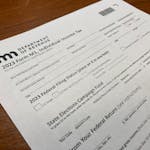Boston Scientific Corp. soared to its highest share price in more than a decade Monday on a published report that it could merge with another medical device company and take its place in the emerging era of "Big Device."
The Wall Street Journal jostled the med-tech market early Monday with a report that Michigan-based Stryker Corp., long known for selling hip and knee implants, recently made a "takeover approach" for the heart-device maker Boston Scientific Corp. The surviving company would have about $24 billion in global sales and about 7,000 employees in Minnesota.
Both companies declined to comment Monday, and stock analysts said the news was surprising. It was not clear that Boston Scientific would be receptive to Stryker's takeover approach, or if a deal would actually materialize.
However, such a deal would be logical, at least on its face.
Thom Gunderson, a longtime Twin Cities med-tech stock analyst who is now retired, said Monday that medical-technology companies need to sell a wide array of products to compete on a global scale. That's especially true in the wake of crosstown heart-device rival Medtronic's $50 billion acquisition of medical products maker Covidien, which was first announced four years ago this week.
"If Medtronic is going to offer a wide array of products, then others that want to be competitive ... are going to have to start making the same kinds of big moves," Gunderson said. "So you saw Abbott buy St. Jude Medical. Now you've got rumors of Boston Scientific and Stryker. Makes perfect sense to me. Go big or go home is the rule of the day."
He said many medical device companies are likely to organize themselves into huge companies as the medical-technology industry follows the lead of the pharmaceutical industry. Just as "Pharma" became "Big Pharma," device makers are now in the process of becoming Big Device.
As with Medtronic-Covidien and Abbott-St. Jude Medical, Stryker and Boston Scientific have largely complementary portfolios with little overlap, which could ease antitrust concerns if the deal ever becomes official.
Wells Fargo analysts led by Lawrence Biegelsen wrote to investors Monday that what little overlap does exist is probably in the two companies' lines of endoscopy products, which are used to peer deep into the body.
But Stryker's catalog is more focused on capital equipment like the scopes, while Boston is more heavily focused on disposable supplies related to the scopes. "Therefore, there may not be antitrust issues," the Wells Fargo team wrote.
Shares in Boston Scientific rose as much as 10 percent Monday before retreating slightly, closing at $34.32, a level not seen since 2004. Meanwhile, shares of Stryker closed down 5 percent, at $169.78.
Boston Scientific is one of the largest medical device companies operating in Minnesota, with key plants in Arden Hills, Maple Grove and Minnetonka. As of 2016, the company employed more than 7,000 people in the state who design and build devices including cutting-edge stents, pacemakers, and men's urology products.
Although it has recently stressed to investors its ability to innovate new technologies, over the years Boston Scientific has grown through acquisitions. In March, for example, it announced intentions to acquire Maple Grove's NxThera, which sells a minimally invasive therapy to treat symptoms of prostate enlargement called BPH, or benign prostatic hyperplasia.
Roughly 3,000 people work at Boston Scientific's Arden Hills campus, where heart-rhythm devices like pacemakers and defibrillators are designed and made. The campus was formerly operated by Guidant, which Boston Scientific acquired in a troubled $27 billion deal in 2006.
Boston Scientific also has a major campus at 1 Scimed Place in Maple Grove, so-named for SciMed Life Systems, the Minnesota-based maker of small devices for interventional cardiology procedures like placing stents. Boston Scientific acquired the company and its Maple Grove location in 1995 for about $1 billion at a time when angioplasty was a fast-growing med-tech therapy. More than 3,000 people work there today.
The company also has about 500 people working at its location in Minnetonka, where it paid $1.6 billion in 2016 to acquire the men's health portfolio of the long-running Minnesota urology company American Medical Systems.
On Monday, Boston had a market capitalization of $47.5 billion, compared to Stryker's $63 billion.
Stryker, named for Michigan orthopedic surgeon and inventor Dr. Homer Stryker, has major product groups in orthopedic devices, medical and surgical supplies, neurotechnology and spine products.
Joe Carlson • 612-673-4779





